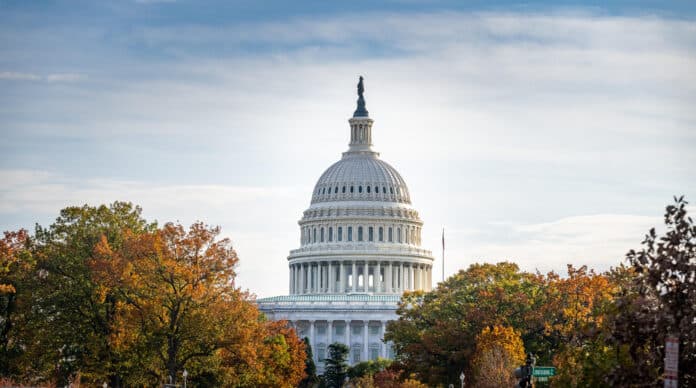Senate Ag leaders dug in further on farm bill differences at a USDA oversight hearing with Secretary Tom Vilsack this week.
Vilsack hinted at the deep policy differences dividing Senate Ag lawmakers when he quoted USDA’s founder, President Abraham Lincoln saying “A house divided against itself cannot stand.”
And with the Lincoln quote made the unspoken point–stubborn partisan differences could force another one-year extension of the 2018 farm bill. Politico quoted retiring Ag Chair Debbie Stabenow at a recent White House event that she’d sooner stick with the 2018 bill than leave a legacy of climate and SNAP cuts. And at the latest hearing, Stabenow said, “The bipartisan evaluation of SNAP that we directed in the 2018 farm bill, after 50-years of the program, resulted in just an additional dollar-40 per day per person, bringing benefits to about six dollars a day to help folks put food on the table. But this was enough to lift one million children out of poverty.”
But top Ag Republican John Boozman has a different focus – the need to boost the farm safety net with SNAP and climate savings. Boozman says, “What I’ve heard from our nation’s farmers is they’re very concerned. Specifically, they’re challenged by persistently high and historic inflation, stubbornly high interest rates, burdensome regulations, record high trade deficits in agriculture, and most importantly of all, rapidly declining commodity prices and farm incomes that will make the next five years some of the most challenging in their lives.”
Citing a record 80 billion dollar drop in net farm income since 2022. Vilsack claimed net cash income hit a record the last three years with falling joblessness and rural poverty and argued new revenue streams, not just a new farm bill, are needed. Vilsack says, “That’s why we’re focused at USDA on more, new, and better markets, on climate-smart agriculture, on renewable energy, and on local and regional food systems.”
Vilsack committed only to work with lawmakers to boost crop supports possibly with CCC funds, but on SNAP, defended USDA’s updating benefits in 2022, while adding that costs could come down with declining enrollments.
Story courtesy of NAFB News Service and Matt Kaye/Berns Bureau Washington


